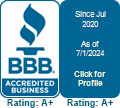
In the realm of private aviation, a transformation is underway, one that marries the pinnacle of luxury travel with the pressing need for environmental stewardship. As the founder of JetLevel Aviation, I’ve witnessed firsthand the industry’s evolution and the growing importance of Sustainable Aviation Fuels (SAF) in mitigating the environmental impact of private jets. My journey through the private jet charter sector has instilled in me a profound appreciation for innovation, especially when it aligns with our collective responsibility towards the planet. Today, I’m excited to share insights into how SAF is shaping the future of private aviation, drawing from my personal experiences and the advancements I’ve seen in the field.
Introduction to Sustainable Aviation Fuels (SAF)
Sustainable Aviation Fuel (SAF) represents a groundbreaking shift in aviation fuel technology, designed to significantly reduce the carbon footprint of air travel. Unlike traditional jet fuel derived from fossil resources, SAF is produced from sustainable sources such as waste oils, agricultural residues, and even algae. My first encounter with SAF was during a visit to a pioneering biofuel production facility. The passion and commitment to sustainability I saw there were nothing short of inspiring, driving home the potential of SAF to transform aviation.
The Environmental Impact of Private Jet Travel
Private jet travel, while synonymous with luxury and efficiency, has long been scrutinized for its environmental footprint. In the early days of JetLevel Aviation, I grappled with this challenge, searching for ways to reconcile the demands of high-end travel with the imperative of environmental conservation. The carbon emissions from private jets not only contribute to climate change but also affect air quality, making the pursuit of greener alternatives a priority for our industry. Understanding the cost of chartering a private jet includes recognizing the environmental cost and working towards mitigating it.
How SAF Reduces Carbon Footprint
SAF’s role in reducing the carbon footprint of aviation is profound. By utilizing renewable resources, SAF can cut greenhouse gas emissions by up to 80% over the fuel’s life cycle compared to conventional jet fuel. I remember the excitement of arranging the first flight powered by SAF for a client deeply committed to sustainability. Witnessing their satisfaction and knowing we were making a difference was a defining moment, underscoring the tangible benefits of SAF. Recent studies underscore the environmental benefits of SAF. For instance, the International Air Transport Association (IATA) reports that using SAF can reduce the carbon emissions from aviation fuel by up to 80% over its lifecycle. By partnering with producers who adhere to stringent sustainability criteria, JetLevel Aviation is at the forefront of this transformative shift. Our commitment to environmental stewardship is further reinforced by our accreditation with the Better Business Bureau (BBB) and our exclusive partnership with NBAA and IS-BAO-registered operators, ensuring our clients not only travel in luxury but also contribute positively to the planet.
Advancements in SAF Technology and Production
The technology behind SAF has evolved rapidly, thanks to continuous research and innovation. Modern production methods, such as the Fischer-Tropsch process or hydroprocessed esters and fatty acids (HEFA), have increased the efficiency and sustainability of SAF. As someone deeply entrenched in the aviation sector, staying abreast of these advancements has been crucial. It’s not just about offering luxury travel; it’s about offering forward-thinking solutions that anticipate the needs of the planet and our clients. This commitment is reflected in our dedication to offering charter flights at competitive costs, including those utilizing SAF.
The technological backbone of SAF, including the Fischer-Tropsch process and hydroprocessed esters and fatty acids (HEFA), represents the cutting edge of sustainable fuel production. These processes transform biomass and waste oils into high-quality aviation fuel, minimizing reliance on fossil fuels. My continuous engagement with industry innovations ensures that JetLevel Aviation remains a leader in sustainable aviation, offering our clients not only unparalleled luxury but also the peace of mind that comes from knowing they are flying with the most advanced and eco-friendly fuels available.
The Future of Private Jets with SAF Integration
Looking ahead, the integration of SAF into the private jet sector holds immense promise. This transition is not just a trend but a necessary shift towards sustainable luxury travel. My vision for JetLevel Aviation includes a fleet where SAF is the norm, not the exception. We are already seeing an increase in demand for SAF-powered flights, a clear indicator of changing client priorities and a brighter, greener future for aviation. The opportunity to request a quote for a SAF-powered flight is an exciting step for our clients.
Economic and Regulatory Drivers for SAF Adoption
The adoption of SAF is being propelled by a combination of economic incentives and regulatory measures. Governments and international bodies are implementing policies to support SAF, recognizing its role in meeting global emission reduction targets. For operators and clients alike, understanding these drivers is crucial. In my dealings with regulatory bodies and partners, I’ve advocated for policies that facilitate SAF adoption, emphasizing the long-term benefits over the initial costs. Our empty leg flights offer a glimpse into the economic advantages of innovative flight solutions, including those powered by SAF.
Embracing Sustainability in Luxury Travel
The journey towards sustainability in luxury travel is an ongoing one, requiring commitment, innovation, and collaboration. At JetLevel Aviation, we’re proud to be at the forefront of this transformation, offering our clients the opportunity to experience the pinnacle of travel with minimal environmental impact. Our partnership with leading SAF producers and commitment to sustainability are testament to our belief in a greener future for aviation.
From arranging JetLevel Aviation’s first SAF-powered flight to navigating the complexities of global sustainability regulations, my journey has been marked by a series of milestones that reflect our commitment to eco-friendly travel. Each step has presented unique challenges, from ensuring the availability of SAF at key airports to educating clients about its benefits. Overcoming these obstacles has not only deepened my understanding of sustainable aviation but also reinforced JetLevel Aviation’s position as a pioneer in the industry.
As we look to the future, the integration of Sustainable Aviation Fuels into private jet travel offers a path to reconcile luxury with environmental responsibility. I invite you to join us in this journey towards a more sustainable future. For those interested in experiencing the future of luxury travel, I encourage you to request a quote through JetLevel Aviation and discover how sustainability and luxury can go hand in hand.


